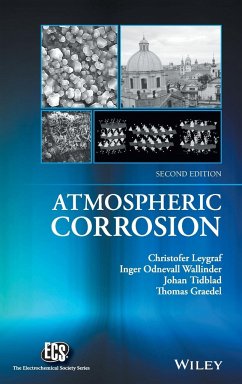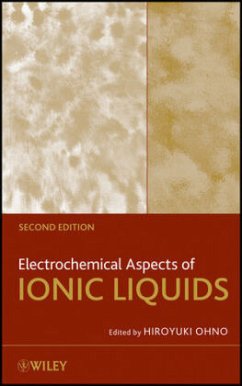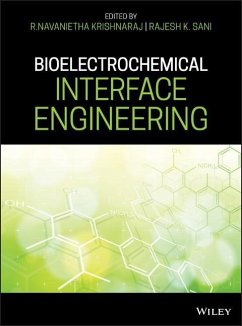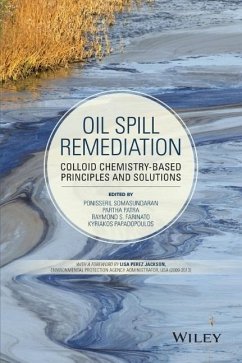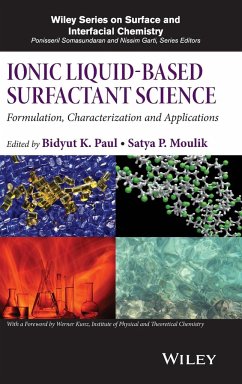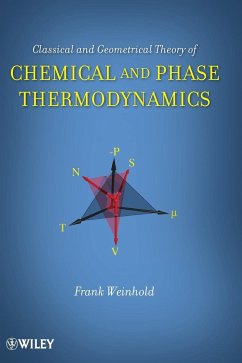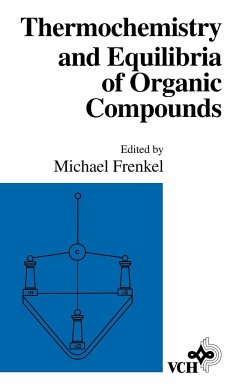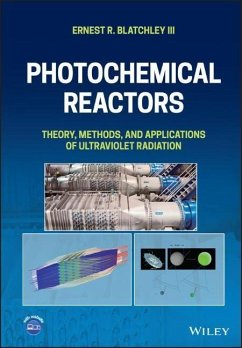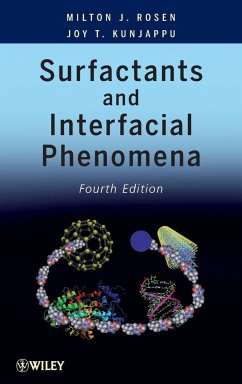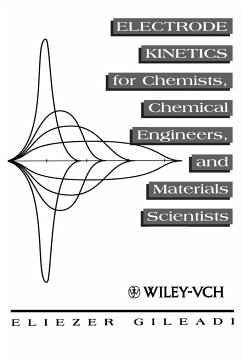
Heterogeneous Electrode Processes and Localized Corrosion
Versandkostenfrei!
Versandfertig in über 4 Wochen
138,99 €
inkl. MwSt.
Weitere Ausgaben:

PAYBACK Punkte
69 °P sammeln!
This book covers the areas of electrochemical heterogeneity and electrode inhomogeneity and their effects on nonuniform electrode processes, in particular, localized corrosion. It covers the fundamentals, experimental methods, and engineering aspects of electrochemical heterogeneity. The coverage includes numerous case studies demonstrating engineering aspects of localized corrosion in industrial processes. In addition, it covers methods to quickly calculate corrosion rates and study electrode inhomogeneity and electrochemical heterogeneity. The text offers special focus on the wire beam electrode method as a tool, representing a particular expertise of the author.
Sheds new light on the significance of electrode inhomogeneity and electrochemical heterogeneity
A major contribution to the field of electrochemistry, this book--based on a thorough review of the literature and author Yongjun Tan's twenty years of pioneering research--examines electrochemical heterogeneity and its effects on non-uniform electrode processes. The book focuses on localized corrosion, uneven electrodeposition, and non-uniform electrodissolution. Readers will learn all the core fundamentals, experimental methods, and engineering aspects of localized corrosion and other important heterogeneous electrode processes. In particular, readers will learn core methods to quickly calculate corrosion rates and study electrode inhomogeneity and electrochemical heterogeneity.
Heterogeneous Electrode Processes and Localized Corrosion begins with a review of homogeneous electrode models and uniform corrosion measurements and then explores probing electrode inhomogeneity, electrochemical heterogeneity, and localized corrosion. Next, the book examines:
Visualizing localized corrosion using electrochemically integrated multi-electrode arrays
Measuring thermodynamic and kinetic parameters of localized corrosion processes
Characterizing inhomogeneity and localized corrosion on coated electrode surfaces
Designing experiments to study localized corrosion and its inhibition in inhomogeneous media
Sensing localized electrodeposition and electrodissolution
Exploring versatile heterogeneous electrode processes
Throughout the book, there are case studies with maps that illustrate key aspects of heterogeneous electrode processes. In addition, the author provides plenty of examples that enable readers to fully grasp core concepts of electrochemical heterogeneity and its relationship to non-uniform electrode processes.
Reviewing the experimental findings presented in this book, electrochemists will gain a better appreciation and understanding of the fundamental significance of electrode inhomogeneity and electrochemical heterogeneity.
A major contribution to the field of electrochemistry, this book--based on a thorough review of the literature and author Yongjun Tan's twenty years of pioneering research--examines electrochemical heterogeneity and its effects on non-uniform electrode processes. The book focuses on localized corrosion, uneven electrodeposition, and non-uniform electrodissolution. Readers will learn all the core fundamentals, experimental methods, and engineering aspects of localized corrosion and other important heterogeneous electrode processes. In particular, readers will learn core methods to quickly calculate corrosion rates and study electrode inhomogeneity and electrochemical heterogeneity.
Heterogeneous Electrode Processes and Localized Corrosion begins with a review of homogeneous electrode models and uniform corrosion measurements and then explores probing electrode inhomogeneity, electrochemical heterogeneity, and localized corrosion. Next, the book examines:
Visualizing localized corrosion using electrochemically integrated multi-electrode arrays
Measuring thermodynamic and kinetic parameters of localized corrosion processes
Characterizing inhomogeneity and localized corrosion on coated electrode surfaces
Designing experiments to study localized corrosion and its inhibition in inhomogeneous media
Sensing localized electrodeposition and electrodissolution
Exploring versatile heterogeneous electrode processes
Throughout the book, there are case studies with maps that illustrate key aspects of heterogeneous electrode processes. In addition, the author provides plenty of examples that enable readers to fully grasp core concepts of electrochemical heterogeneity and its relationship to non-uniform electrode processes.
Reviewing the experimental findings presented in this book, electrochemists will gain a better appreciation and understanding of the fundamental significance of electrode inhomogeneity and electrochemical heterogeneity.




